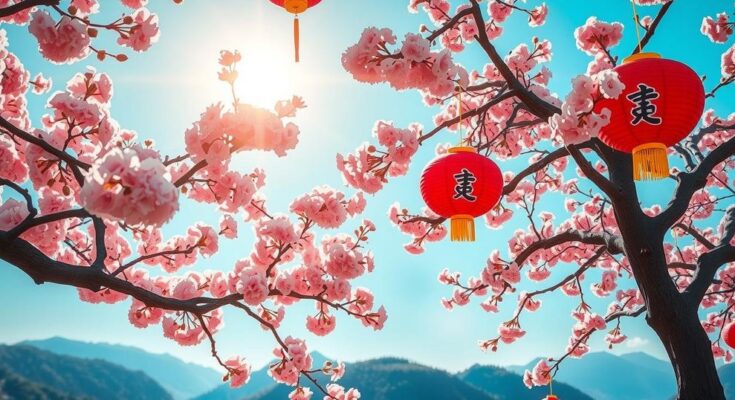As millions around the globe celebrate the Spring Festival, there’s a heightened spirit of joy. Recently, UNESCO listed the traditions associated with the Chinese New Year as part of its Representative List of the Intangible Cultural Heritage of Humanity, recognizing the festival’s rich cultural legacy and worldwide significance. This year’s New Year, filled with pride following this honor, emphasizes a connection that transcends borders.
The Spring Festival represents a time of renewal at the cusp of a new lunar year, marked by family gatherings and traditional festivities. Joyful occasions such as family reunion dinners, dragon dances, and vibrant red decorations create a tapestry of hope and celebration. This year, the festival embodies a deeper meaning, affirming its status as a symbol of cultural persistence and global unity.
UNESCO’s acknowledgment of the Spring Festival highlights its universal values: family, unity, renewal, and hope for prosperity. This festival has evolved into a bridge for cultural understanding—from Beijing to Nairobi and New York—inviting people from all backgrounds to engage with Chinese traditions and share their aspirations for peace and togetherness.
In Kenya, the Spring Festival takes on particular significance, fostering connections between locals and the Chinese community. Recent events at venues like Two Rivers Mall brought together Kenyans to revel in the vibrant customs and traditions, showcasing that this recognition celebrates Chinese heritage while enhancing global culture through mutual appreciation.
UNESCO’s recognition serves as a reminder that cultural heritage is inherently dynamic and must adapt over time. By honoring the Spring Festival, we acknowledge the importance of preserving these living traditions, which are essential in enriching our global cultural landscape. This is more than a cultural win for China; it urges all nations to protect their diverse intangible treasures.
As families gather and engage in age-old customs, this year’s Spring Festival underscores the interconnectedness of various global traditions. Celebrations encapsulate shared human values and foster unity across generations and cultures, highlighting how cultural heritage can build bridges and enhance global understanding.
The Spring Festival now resonates universally, representing not only China’s cultural legacy but also a collective celebration of humanity. As people partake in festivities, they engage in one of the world’s oldest traditions, increasing its relevance in today’s rapidly changing landscape. Embraced by UNESCO, the Spring Festival ascends as a cultural asset belonging to everyone, inviting reflection on human connections woven through time.
The Spring Festival celebrates cultural heritage and global unity, recently recognized by UNESCO as an intangible cultural treasure. This acknowledgment highlights shared human values like family and hope. Events in places like Kenya enhance cultural connections, emphasizing the festival’s significance in fostering global understanding and cooperation. This year’s celebrations represent not just a Chinese tradition but a global cultural treasure.
The global celebration of the Spring Festival, now recognized by UNESCO, reinforces its cultural significance and universal values—family, unity, and hope. It serves not only as a tribute to China’s rich heritage but also as an opportunity for intercultural exchange and global connectivity. This year, as communities come together, they celebrate the festival’s enduring relevance and the shared human aspiration for peace and prosperity.
Original Source: www.capitalfm.co.ke



